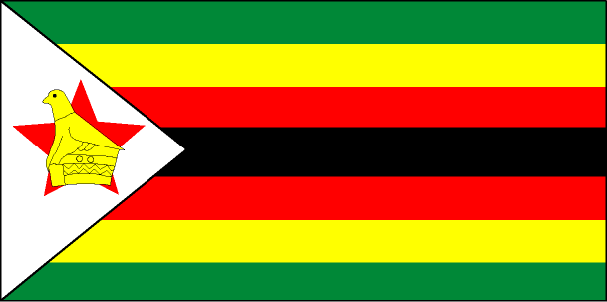Login form
Customs of Zimbabwe
 Marriage and Family
Marriage and Family
In the past, marriages were most often arranged by families, but today people usually choose their own marriage partners. When a couple is ready to marry, it is traditional for visits and gifts to be exchanged between the groom’s representative and the bride’s family. The parents plan the wedding. A bridal token, known as a roora (or lobola), is paid to the bride’s parents. Because there has been a tendency for the bride’s family to demand more and more, some people now want the tradition abolished. A church wedding for a Christian couple is often just one of many ceremonies that mark the marriage.
The father is usually considered the head of the family, but the mother also exercises influence in the home. The father expects to make all final decisions and to support his family (including children, wives, and any other women in his household). Polygamy is common among some groups. In rural areas, where the extended family is important, it is common for more than one generation to live together. In urban areas, families tend to be more nuclear, although family ties are strong. The elderly are shown great respect, and children are expected to look after their elderly parents. While urban homes often have electricity and running water, some rural families live in homes without such conveniences.
Eating
Sadza, a stiff porridge made from maize meal, is the staple of most Zimbabweans and is served at almost every meal. Various local vegetables serve as garnishes, and meat is eaten when available. In the cities, people tend to have a more Western diet instead of sadza. Locally grown fruit, such as mangoes, bananas, melons, guavas, and mapopo (papayas), are enjoyed at various times of the year. Tea is popular with meals and in the office.
In general, the main meal is eaten after the day’s work is finished. Although many Zimbabweans use Western utensils, in rural areas it is usual to eat with the fingers. Regardless of what is used, water is first provided for washing hands. Depending on the food, in rural areas people may eat from a communal dish, and parents often eat separately from their children. Guests are usually served the food rather than helping themselves, and it is normal to leave a little food on the plate to indicate that one has been provided with more than enough to eat.
Socializing
A handshake is commonly used in greeting. “Good morning, how are you?” is understood by all language groups. “Hello” is also popular. Common Shona greetings include Mangwanani (“Good morning”), Masikati (“Good day”), and Manheru (“Good evening”). Greetings among friends may include lengthy inquiries about family members. In
The concept of time is much more flexible in the villages than in the cities, where people expect invited guests to arrive on time. Unannounced visits are common, especially in villages. Small, practical gifts for both urban and rural families are appreciated but not expected. Hosts always offer guests refreshments, usually soft drinks or tea and sometimes a snack. Inviting friends or relatives for afternoon tea is quite popular, and people also enjoy having guests for dinner. When refreshments or food are offered, it may cause offense to refuse them.
Recreation
Soccer is the favorite sport, but swimming, tennis, boxing, rugby, cricket, polo, bowling, field hockey, squash, golf, and horse racing are enthusiastically pursued by various segments of the population. People also enjoy socializing, watching television, and going to the cinema.
Holidays and Celebrations
In
In addition, local religious celebrations are held throughout the country at various times during the year.
Source: Encarta Interactive World Atlas

